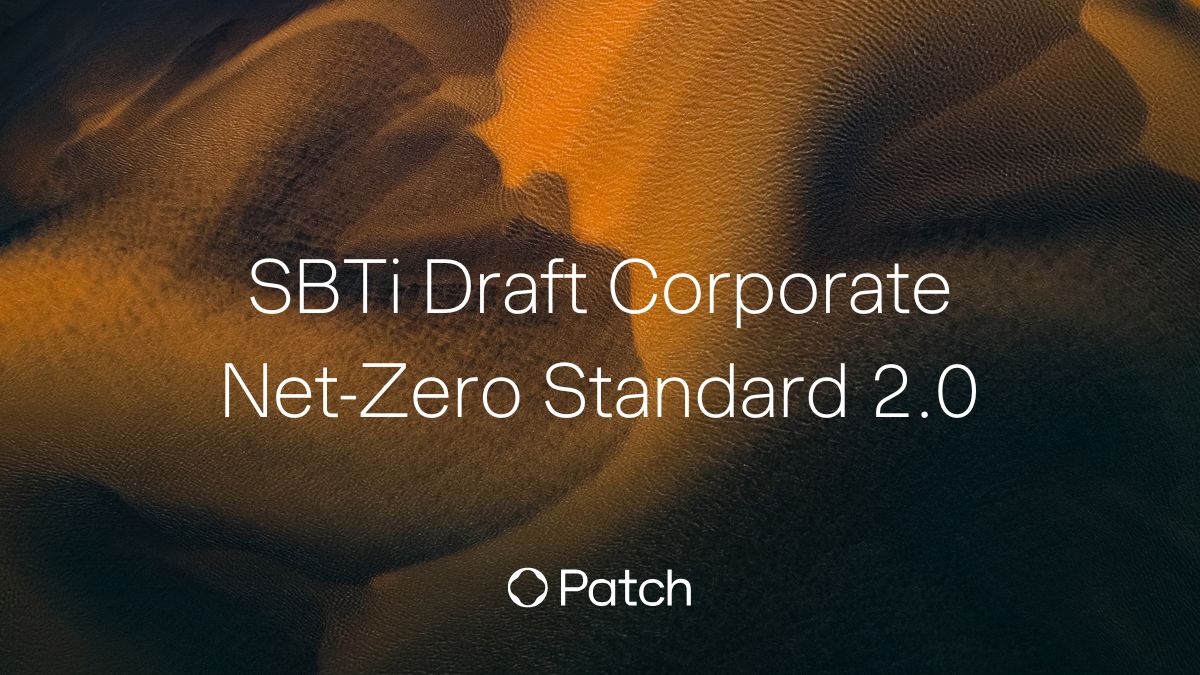On May 28, 2024, the U.S. government released a Joint Policy Statement and Principles for High-Integrity Voluntary Carbon Markets (VCMs). It’s a major development for climate finance, since for the first time, the U.S. government is explicitly encouraging the private sector to responsibly participate in high-integrity carbon markets. Given that regulation of this space is unlikely in the current political climate, this is the biggest signal corporates could expect from the government on how they should think about VCMs and carbon credits.
Key takeaways
- These principles clarify the U.S. government’s position that high-integrity VCMs can play an important role in reaching global climate targets and will serve to guide how the U.S. Government engages with VCMs.
- The principles closely follow the core integrity principles already generally accepted by both the demand and supply sides of the market developed by leading voluntary initiatives including ICVCM and VCMI.
- The principles weigh in on the recent Scope 3 debate, calling for demand-side credit standards (i.e. SBTi) to consider allowing companies to count credits toward a portion of their Scope 3 emissions targets.
Why this announcement matters
When it comes to voluntary carbon markets, the policy response coming from across governments and non-governmental standards bodies has historically been fragmented. Carbon credit disclosures have been the subject of state-level legislation in California. They’ve been targeted by SEC disclosure rules that are now on pause following legal challenges. Independent standards groups have recently begun to coalesce, but the standards map can still seem murky from the perspective of most corporate sustainability professionals.
That’s what makes these newly announced principles unique: they were released underneath the joint banners of the White House, The Department of the Treasury, Department of Energy, and the US Department of Agriculture. This reflects a broader, unified strategy coming from the top — one that should be the market-moving signal to trigger much more widespread engagement with high-integrity carbon credits.
There’s nothing groundbreaking about the principles themselves, but ICVCM and VCMI led a post-announcement panel discussion, which signals alignment to those organizations’ standards for integrity around credits and claims.
“Voluntary carbon markets can help unlock the power of private markets to reduce emissions, but that can only happen if we address significant challenges,” said Treasury Secretary Janet Yellen. These principles aim to coalesce the market and government efforts around solutions to those challenges.
Overcoming climate finance obstacles
When you look at the total size of the VCM, it’s currently relatively small compared to overall climate finance — just under $2 billion was spent on voluntary carbon credits last year. The average of total global climate finance across all sources in 2021 and 2022 was $1.27 trillion. But it’s clear the potential of the VCM is huge: estimates range from $250 billion to over a trillion by 2050. A huge part of that growth depends on unlocking the private sector capital that’s currently sitting on the sidelines.
That means two main actions:
- Aligning on a universally accepted, scientific standard for integrity that can help put to rest fears of greenwashing
- Accelerating the market via strong demand signals and funding for innovation
Across the four government institutions represented in these principles, both actions are represented. Let’s look at the integrity principles themselves:
- Credit-generating activities should avoid environmental and social harm and should, where applicable, support co-benefits and transparent and inclusive benefits-sharing.
- Corporate buyers that use credits should prioritize measurable emissions reductions within their own value chains.
- Credit users should publicly disclose the nature of purchased and retired credits.
- Public claims by credit users should accurately reflect the climate impact of retired credits and should only rely on credits that meet high integrity standards.
- Market participants should contribute to efforts that improve market integrity.
- Policymakers and market participants should facilitate efficient market participation and seek to lower transaction costs.
These principles also come alongside a laundry list of departmental action from the DOE’s Carbon Dioxide Removal Purchase Pilot Prize to their Carbon Negative Shot and Regional DAC hubs. These represent concrete dollars toward scaling real-world climate solutions, and should contribute to driving up the supply of high-integrity carbon credits and lowering costs associated with producing them.
What this means for corporate carbon credit buyers
If you’ve been holding off engaging with carbon credits for lack of clarity on what “good” participation looks like, it’s time to reconsider your stance. These principles are a clear signal that a) carbon markets are a vital path for climate impact and b) this is the playbook to follow for purchasing credits and disclosing their use.
“Let me be clear: we applaud companies that finance decarbonization through purchase of high-integrity credits” – Treasury Secretary Janet Yellen
U.S. buyers, in particular, should review the principles and seek to align their strategy. This includes only using credits that meet high integrity standards and preparing to publicly disclose their purchase and retirement of credits.
Overall, this is an important signal to the VCM that should bolster confidence and continued growth in the market. The leadership the U.S. is showing sends a strong message to corporate buyers, project developers and other market participants.
From a climate perspective, our position at Patch has always been that early and aggressive purchasing across a diversified portfolio of high-integrity carbon credit projects is critical to ensuring a livable future.
This announcement offers yet one more reason to act fast: the VCM is supply constrained for all kinds of structural reasons. As more and more corporate buyers move off the sidelines, high-integrity credits that fit your sustainability strategy likely will become harder to access. We’ve already seen buyers like Microsoft, McKinsey, and others moving up their procurement schedules to ensure access.
To talk to our climate experts about sourcing these hard-to-get, high integrity credits, reach out to Patch today.






